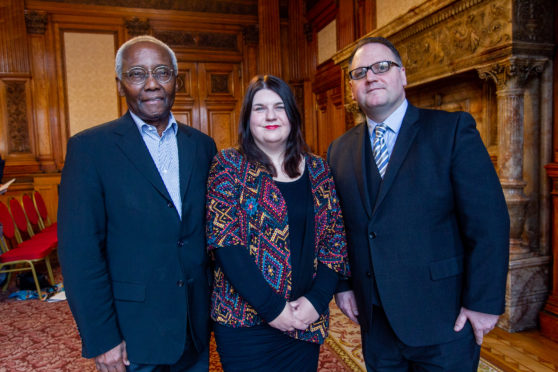
A study into the legacy of slavery in Scotland’s largest city has been put on hold by the Covid-19 crisis.
The research was launched in November to analyse links between street names, buildings and statues in Glasgow to the slave trade. However, the research stopped when archives and libraries vital to the historical analysis were shut due to lockdown.
Historian and author Dr Stephen Mullen, the Glasgow University academic leading the research for the city council, is also currently on the UK Government’s furlough scheme.
Many of the city’s most famous streets are named after merchants who gained great wealth via sugar and tobacco harvested on slave plantations in the Caribbean and the US.
The study will look at areas such as the city’s Buchanan Street, named after a tobacco merchant, and the council chambers itself, which it’s believed may have been constructed in part due to donations from slave owners or their direct descendants.
Glasgow City Council leader Susan Aitken said: “Last year, Glasgow became the first city in the UK to commission an in-depth academic study into the city’s links to transatlantic slavery and colonialism.
“Once complete, it is essential our community takes an informed and collective view of how the modern city should deal with the wounds of its past and the scars that remain today.”
Last weekend, activists replaced signs of streets in the city named after tobacco merchants and slave owners.
It came amid protests in other cities, which have seen controversial statues and monuments toppled or defaced, sparked after Mr Floyd, a 46-year-old black man, died in Minnesota when a white police officer knelt on his neck for eight minutes.
A petition to rename streets linked to slave owners has gained more than 10,000 signatures, while police are monitoring a number of statues, which have been highlighted as potential targets by protesters.

Enjoy the convenience of having The Sunday Post delivered as a digital ePaper straight to your smartphone, tablet or computer.
Subscribe for only £5.49 a month and enjoy all the benefits of the printed paper as a digital replica.
Subscribe